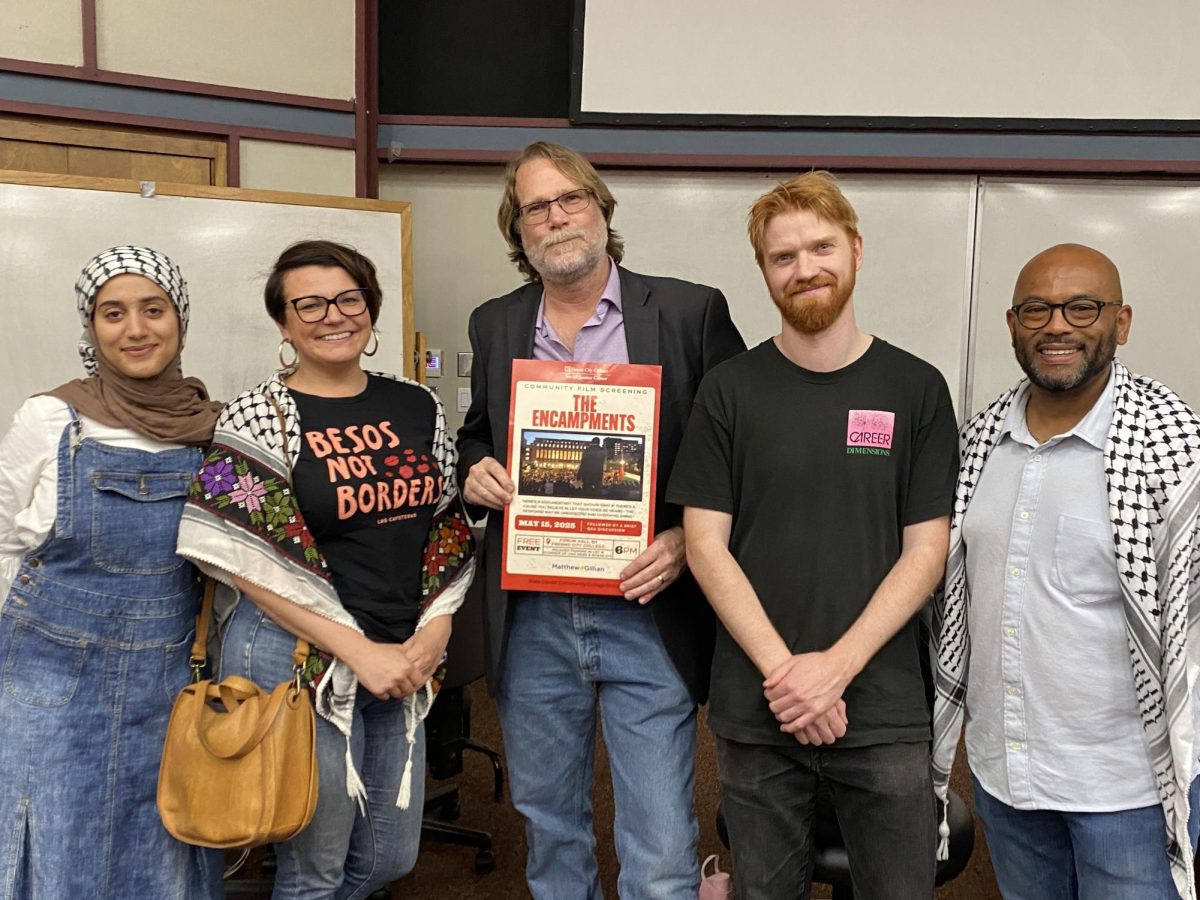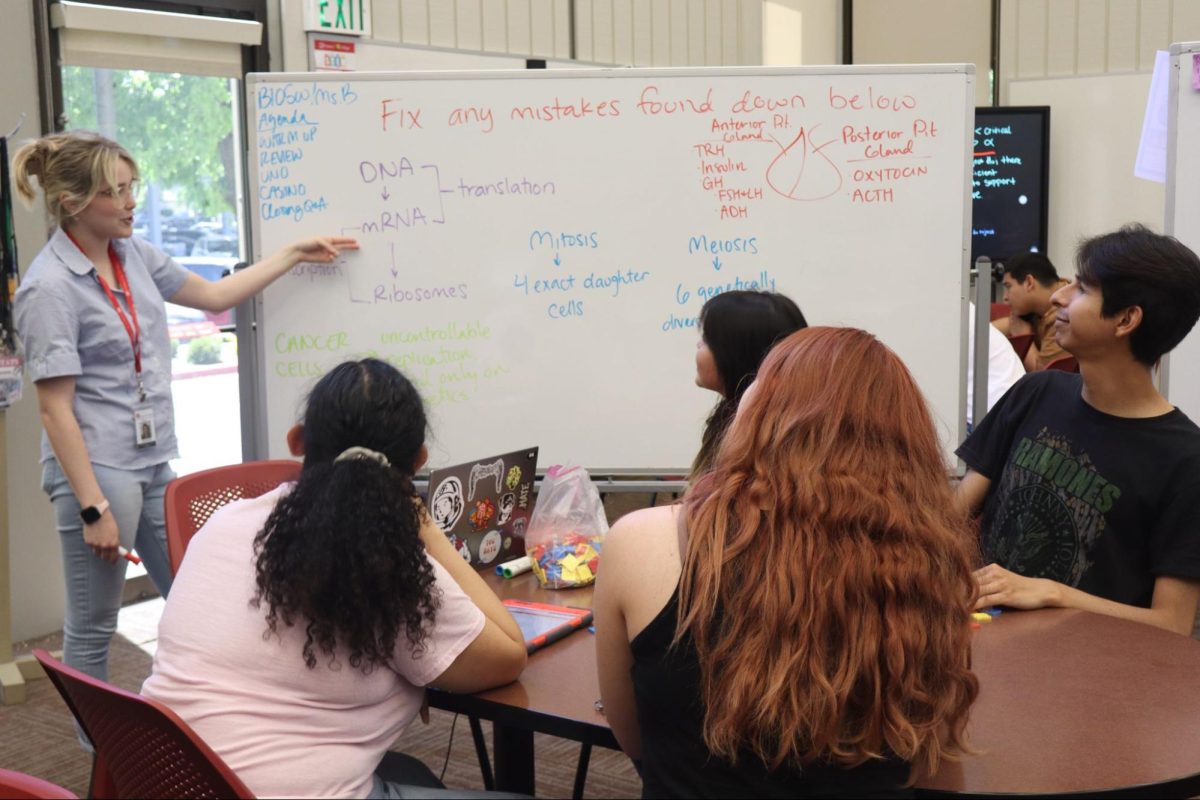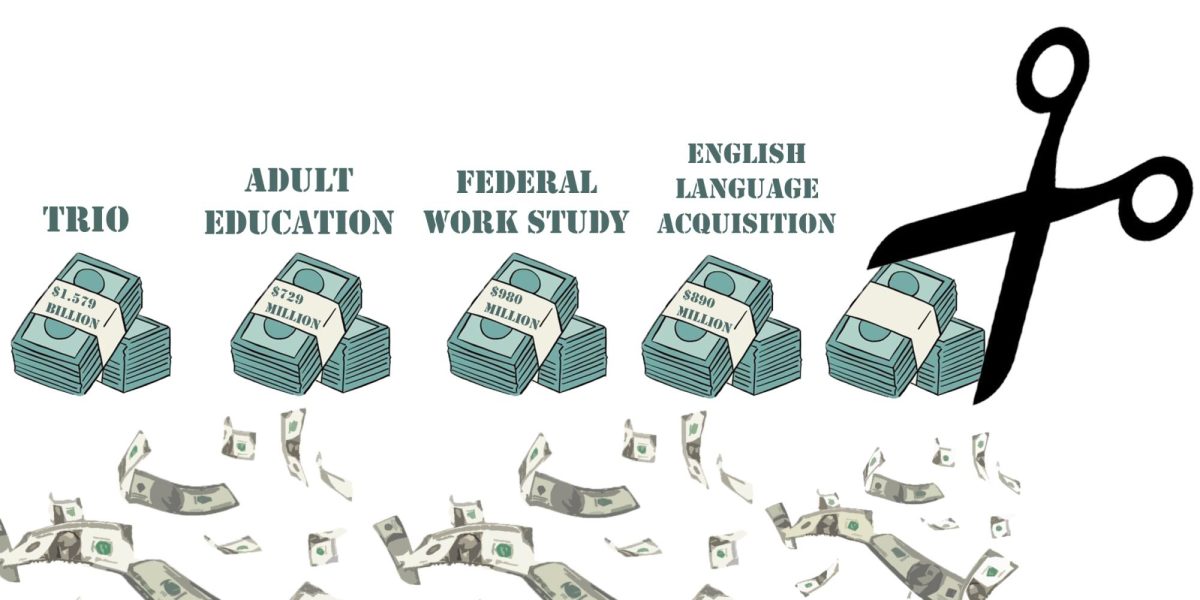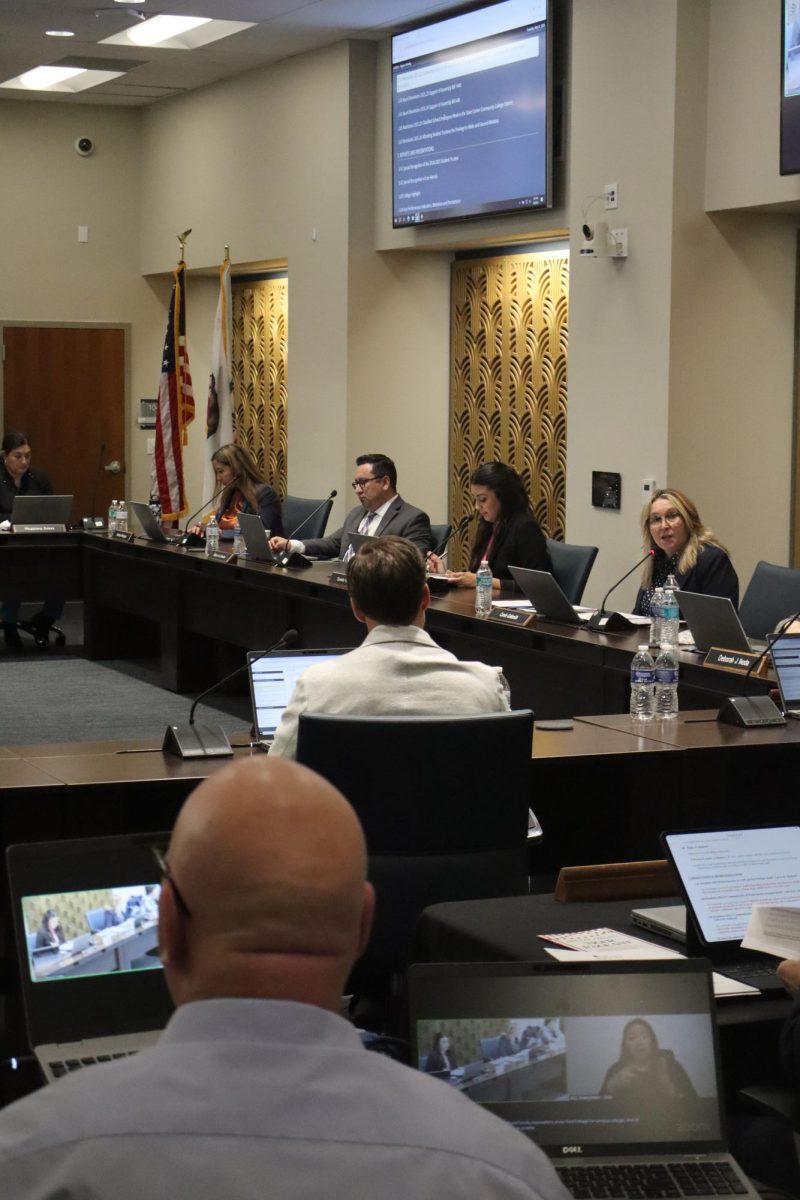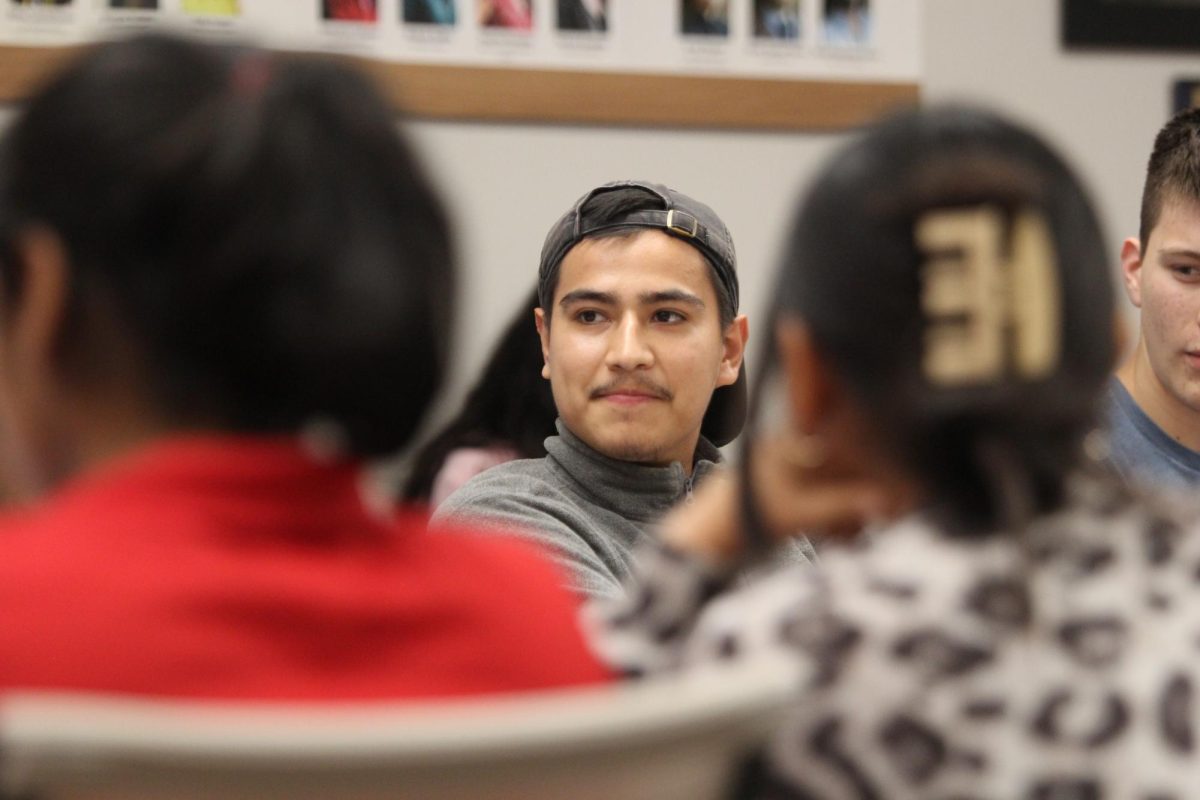The May Day lecture held in Fresno City College’s student lounge drew a large crowd Tuesday and students received a lesson on the importance and necessity of making their voices heard through activism in their community. History Professor Paul Gilmore presented a stirring lecture on the history of May Day and what it means to Americans today, especially in light of the current economy and immigration debates.
“American working people should join May Day, we should start celebrating it,” says Gilmore. “Because I think if we’re ever going to get out of this global economic mess, we need to join together with people across borders.”
May Day, which originated in 1886 after Chicago’s Haymarket Riot, has become an international holiday in celebration of laborers and, generally, is a day on which laborers around the world band together to demonstrate for their rights.
Americans have not made a tradition of celebrating May Day, Gilmore says, because after the riot in Chicago and eight innocent men were subsequently condemned to death for allegedly inciting it, the infamous day became a symbolic holiday in the former Soviet Union, thereby linking it to communism.
Globalization has rendered May Day a day of international uprisings as workers all over the globe raise flags, banners and their voices to cry out for changes in governmental policies in the workplace. In America’s not-so-distant past, 18-hour-workdays, seven day work weeks, child labor and unsafe working conditions were common. If not for workers banding together, forming unions and fighting to change the laws, those horrible conditions would be a way of life today.
In other parts of the world, those conditions are still the norm. Children, as young as 13 years old, are hard at work on assembly lines and sewing machines making the clothes, shoes and other products that we buy every day. From Greece, to Cambodia, to India and Pakistan, May Day 2012 saw laborers in the streets fighting for change in an effort to better their and their children’s lives.
“All throughout the world,” says Gilmore, “we’re seeing austerity policies, basic work rules that have been put into place through law that are being repealed and cut; the argument being that in this economic time we can’t afford it anymore and so folks are out in the streets.”
Because Americans purchase the products made overseas, the austerity laws and policies that affect the workers in other parts of the world also affect us. As such, Teresa Tarazi, an FCC English and Latino Studies instructor who brought her students to Gilmore’s lecture states, “I want [my students] to have the awareness and knowledge that we don’t live in an isolation, this is a world issue, this is a crises for workers and as high as Fresno’s unemployment is, even here at the city college, [with] cutbacks happening, they need to become more active and aware and be a part of the voice of change and what is fair and right.”
As Gilmore pointed out, the clothes we wear and the shoes we put on our feet are not brands, but labor; the labor of the people who made them. Therefore, we are all in a relationship with each other.
“If there is anything that May Day should remind us of,” says Gilmore, “is that we have relationships with millions of people all over the world already, you don’t know them, but they picked the beans in your coffee, somebody else dried them, somebody else roasted them, somebody else ground them. This glass mug; there’s thousands of people involved in the production of this thing. You have a relationship with those folks and you have to ask the question, is it a good relationship or is it an abusive one?”

